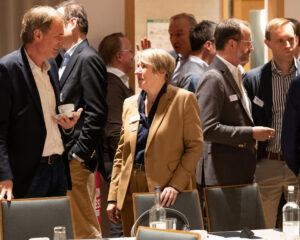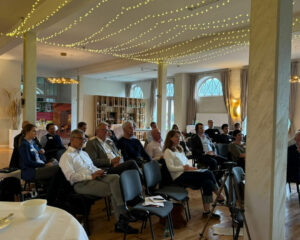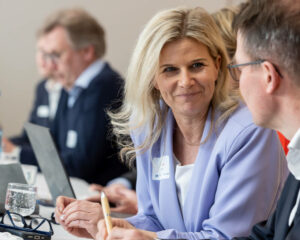
The association of private investors based in Schleswig-Holstein who invest in start-ups, Baltic Business Angels Schleswig-Holstein e.V., Kiel, has observed a significant decline in willingness to invest within its membership over the course of the first half of 2023.
In a recent member survey, less than 30% of the responding angels stated that they are currently still open to new investments. Around a third of these angels believe they will be ready or able to invest again in six months at the earliest, and a second third in twelve months at the earliest.
By far the most common reason given for the reluctance to invest is the current economic conditions. This is followed in second place by temporarily exhausted liquidity or a willingness to invest as a result of investments already made over the past few months or being too actively involved in existing investments to be ready for further investments from a time perspective.
The specific reasons given by the business angels in an open question for their reluctance to invest vary. Some private investors only use their financial resources to keep their existing investments afloat. Others retain their liquid reserves in order to cover any future sales or liquidity risks of their investment.
Others simply want to wait until better times have come or are even considering switching to other alternative asset classes.
Little use is made of the opportunities offered by lower company valuations
Around 70 percent of the business angels who responded are therefore currently not prepared to take advantage of a difficult economic climate. In recent months, the company valuations of early-stage technology start-ups, which were at record levels during the coronavirus years, have fallen significantly. Investors now have the opportunity to obtain significantly more shares in the start-ups they finance for the same amount of money than was the case in comparable cases recently. The „ticket sizes“ requested by founders, i.e. the amount of capital expected from a business angel, are now predominantly smaller and therefore more business angel-friendly than just a few months ago.
Survey also reflects subdued sentiment at a national level
The current low propensity to invest among the majority of German business angels was a key topic of discussion at the Business Angel Community Summit, which was organized by the German business angel umbrella association Business Angels Deutschland e.V. (BAND) together with the Wiesbaden-based investor network INWI on 13 and 14 September in the Hessian state capital.
Business angels are the most important source of capital for early-stage technology start-ups
Compared to typical other start-up investors, in particular venture capital (VC) companies, public investors, other financial service providers, family members and friends, business angels are by far the most important source of capital for founders of technology start-ups in the so-called seed phase between the initial business idea being found and the first customers being acquired.
On average, significantly more than EUR 2 billion has been invested in technology start-ups by business angels each year in recent years – typically in the form of equity or convertible loans. The annual sum is therefore consistently higher than the amount of money invested by VC companies in early-stage technology start-ups. Exact amounts are difficult to specify, as the definition of business angels is vague and the terms „high-tech“, early-stage and late-stage start-ups are also vague.
Angel investors‘ low willingness to invest is dangerous for founders seeking capital
The current reluctance of business angels to invest can trigger a dangerous cascade effect for start-ups in need of capital, as VCs and public banks and funding institutions often make their investment dependent on the willingness of business angels to invest. Their cumulative individual investments are often „mirrored“ 1:1 or 1:2 as part of a start-up financing round. If no business angel invests, institutional public or private investors are often also unable to invest. This partly explains why the willingness of VCs to invest has recently declined significantly, despite the fact that company valuations are currently comparatively attractive for investors.
Measures by the German government are welcomed, but perceived as insufficient
New instruments such as the BMWK’s €10 billion Future Fund and other tools also used by federal states and local authorities to cushion the negative effects of the current economic crisis on start-ups were welcomed at the Wiesbaden Summit.
At the same time, however, many participants considered them to be far from sufficient. On the fringes of the congress, some of the more experienced angels, including the Business Angel of the Year 2021 and Chairman of the host Wiesbaden Angel Association INWI Matthias Helfrich and the Chairman of Baltic Business Angels Schleswig-Holstein Julian von Hassell, were critical of the fact that the German government is currently rolling out „red carpets“ worth billions for major international corporations in order to make domestic and foreign investments and valuable new jobs possible without taking the tight budget situation into account as a hurdle.
On the other hand, it was only in February that the same federal government, explicitly for budgetary reasons, deliberately „amended and shortened“ the previously „very proven“ business angel and start-up support program INVEST, which is being launched within the remit of the same ministry, in such a way that primarily only new angels with less investment experience can benefit from it. „It is precisely the most active and investment-friendly angels“, who have the greatest weight in the start-up ecosystem due to the cascade effect described above, „who will miss out on INVEST in the future“, says von Hassell.












